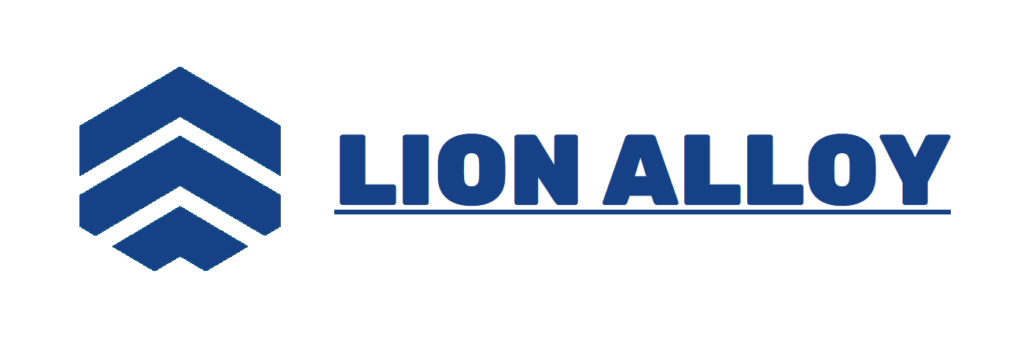Introduction
NIMONIC 80A, a renowned nickel-based superalloy, has emerged as a critical material in the energy sector, particularly for applications in modern power generation systems. Its exceptional mechanical properties, high-temperature stability, and resistance to oxidation make it well-suited for components that operate under the harsh conditions found in gas turbines, steam turbines, and other energy-producing technologies. This article explores how NIMONIC 80A meets the challenges faced in contemporary power generation and why it is increasingly favored by manufacturers and engineers.
1. The Importance of High-Performance Alloys in Energy Production
1.1 Demanding Operational Conditions
Power generation systems, including gas and steam turbines, operate under extreme temperatures and pressures. The materials used must withstand significant mechanical stress, thermal expansion, and oxidation, all while maintaining structural integrity and performance.
1.2 The Role of Alloys in Efficiency
The efficiency of power generation systems is crucial, as it directly affects energy output and operational costs. High-performance alloys, such as NIMONIC 80A, can enhance system efficiency by enabling higher operating temperatures and pressures, which in turn increases the energy conversion efficiency.
2. Properties of NIMONIC 80A Relevant to Energy Applications
NIMONIC 80A boasts several key properties that make it particularly well-suited for energy sector applications.
2.1 High-Temperature Resistance
NIMONIC 80A maintains its mechanical properties at elevated temperatures, with a yield strength of 600 MPa and an ability to withstand temperatures up to 900 °C.
Table 1: High-Temperature Strength Retention of NIMONIC 80A
| Temperature (°C) | Yield Strength (MPa) | Ultimate Tensile Strength (MPa) |
|---|---|---|
| 600 | 550 | 800 |
| 700 | 500 | 750 |
| 800 | 450 | 700 |
| 900 | 400 | 650 |
2.2 Resistance to Oxidation and Corrosion
The high chromium content in NIMONIC 80A provides exceptional resistance to oxidation and corrosion, which is essential in energy applications where components are often exposed to harsh environments.
2.3 Creep Resistance
Creep, the tendency of materials to deform under mechanical stress over time, is a significant concern in high-temperature applications. NIMONIC 80A exhibits excellent creep resistance, allowing components to maintain their shape and performance over extended periods.
Table 2: Creep Resistance of NIMONIC 80A
| Alloy | Creep Rate (mm/1000 hours) | Performance Level |
|---|---|---|
| NIMONIC 80A | 0.001 | Excellent |
| Inconel 718 | 0.002 | Good |
| Waspaloy | 0.005 | Fair |
3. Applications of NIMONIC 80A in Power Generation
NIMONIC 80A is utilized in various critical components of power generation systems, where its unique properties can be fully leveraged.
3.1 Gas Turbines
In gas turbines, NIMONIC 80A is often used for turbine blades, spacers, and combustion chambers due to its ability to perform under high temperatures and mechanically demanding conditions.
Table 3: Applications of NIMONIC 80A in Gas Turbines
| Component | Function |
|---|---|
| Turbine Blades | High-stress parts for energy conversion |
| Combustion Chambers | Containment of high-temperature gases |
| Spacers | Structural support and stabilization |
3.2 Steam Turbines
NIMONIC 80A is also adopted in steam turbines, where it provides high strength and resistance to steam oxidation.
Table 4: Applications of NIMONIC 80A in Steam Turbines
| Component | Function |
|---|---|
| Rotor Blades | Energy extraction under high pressures |
| Nozzles | Direct energy conversion efficiency |
| Casing Parts | Structural integrity under thermal stress |
3.3 Heat Exchangers
In heat exchangers, NIMONIC 80A’s resistance to corrosive environments enhances the efficiency of thermal regulation processes.
Table 5: Applications of NIMONIC 80A in Heat Exchangers
| Component | Function |
|---|---|
| Tubes | Transfer of heat while resisting corrosion |
| Fittings | Maintain flow integrity under heat |
4. Advantages of Using NIMONIC 80A in Energy Applications
Choosing NIMONIC 80A for components in power generation offers several compelling advantages:
4.1 Enhanced Efficiency and Performance
NIMONIC 80A allows for higher operating temperatures, which translates to increased efficiency in energy production.
4.2 Improved Longevity
The superior resistance to oxidation and corrosion enhances the durability of components, reducing maintenance costs and downtime.
4.3 Tailored Design Capabilities
NIMONIC 80A can be forged into complex geometries, providing flexibility in design that meets specific application requirements.
Table 6: Benefits of NIMONIC 80A in Power Generation
| Benefit | Description |
|---|---|
| Increased Efficiency | Higher temperature tolerance boosts performance |
| Lower Maintenance Costs | Reduced wear leads to longer component life |
| Flexible Design | Capability to manufacture complex shapes |
5. Conclusion
NIMONIC 80A is becoming a cornerstone material in modern power generation due to its impressive properties and performance capabilities. Its resistance to high temperatures, oxidation, and creep makes it an ideal choice for critical components in gas and steam turbines, as well as heat exchangers. By leveraging NIMONIC 80A, energy producers can enhance efficiency, reduce costs, and ensure reliability in their systems.
In an era where energy demands continue to rise and the push for efficiency intensifies, the adoption of advanced materials like NIMONIC 80A will play a crucial role in shaping the future of power generation. As technology evolves, it is likely that NIMONIC 80A and similar advanced alloys will continue to drive innovations in the energy sector, paving the way for a more efficient and sustainable future.


